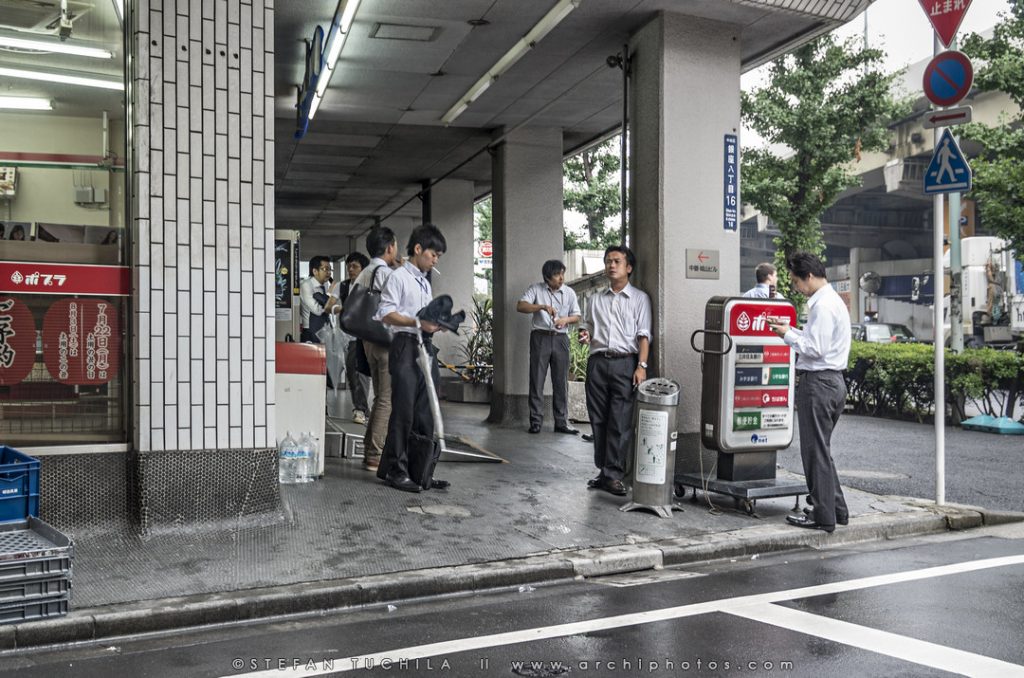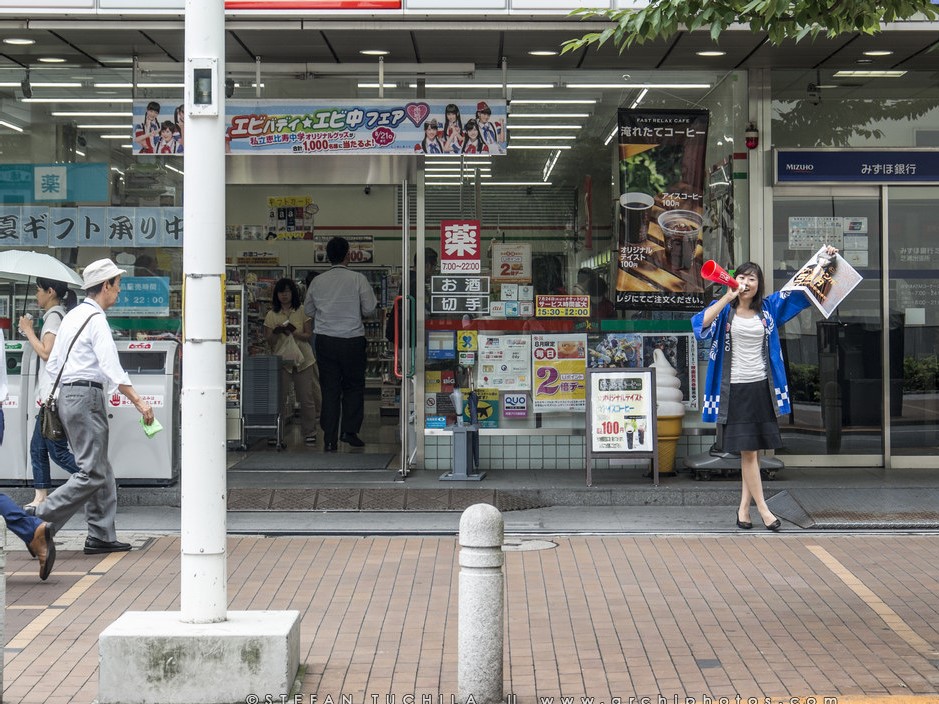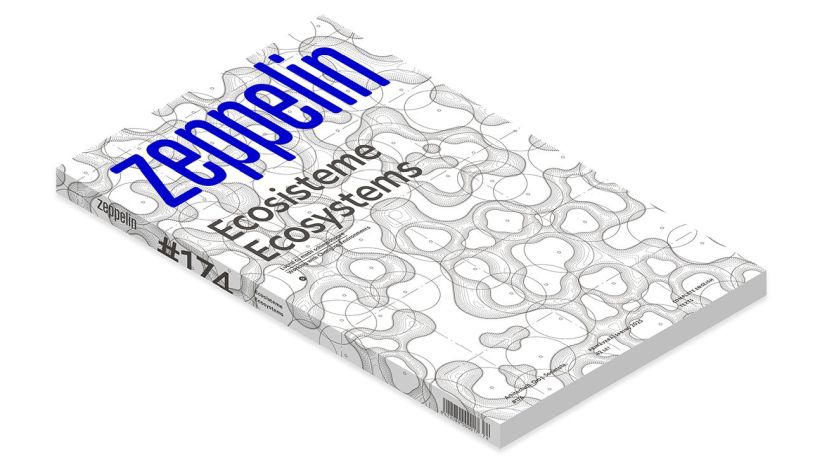Mega-malls and urban shopping areas as cornerstone urban elements, including (or especially) in Asia? Far from it. Introducing Kombini, the Japanese army of tiny hyper-organized and adaptable shops.
Text & Photo: Stefan Tuchila
Across Southeast Asia, in China and South Korea, the logos of the convenience stores networks (7- Eleven, Family Mart and Lawson) dominate the urban landscapes. Nothing special, nor exotic, so far – in European cities we are also accustomed to the ubiquitous stores, sometimes less than a hundred yards apart.
In Japanese cities, however, we’re not talking about distribution networks, but real ecosystems, stretching at city scale, in crowded urban areas and eventually nationwide. As a matter of fact, that is where the religion of Asian convenience stores emerged: in 1974 there were less than 1000, and in 1996 they approached 50,000.
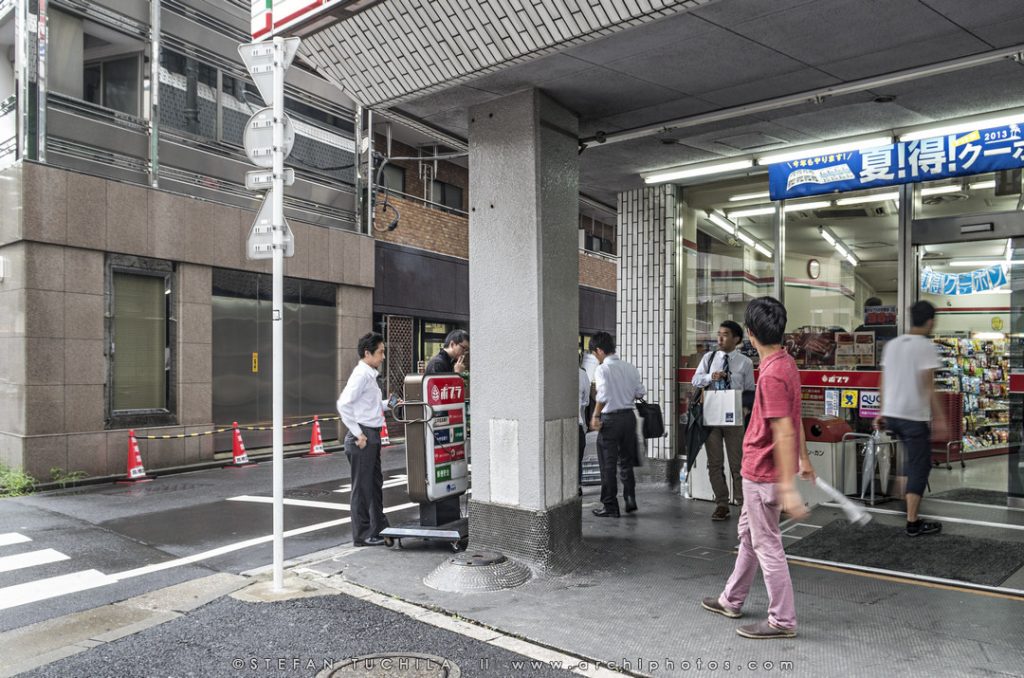 *Smoking area in front of a Kombini, a rare occurrence in Japanese cities, which are quite tough on the habit. Convenience stores networks explot this niche by offering smoking areas for their clients
*Smoking area in front of a Kombini, a rare occurrence in Japanese cities, which are quite tough on the habit. Convenience stores networks explot this niche by offering smoking areas for their clients
7- Eleven, which dominates the Japanese market and other Asian markets, as well, was originally an American company. Following the rapid growth of the Japanese franchise, 7-Eleven Japan has bought the entire company, becoming today the store with the largest number of branches worldwide (figures vary depending on the source, the top spot being shared with Starbucks and McDonald’s). At the time of writing this text, 7- Eleven has 15,458 stores in Japan and 50,758 in the whole world, with a total of approximately 53 million customers a day.
“Kombini” (abbreviation of konbiniensu sutoa – convenience store) is the basic unit of the Japanese distribution system and an essential component of urban life. In a typical Kombini you will find food, drinks, newspapers and books, cosmetics and any other essential element of daily life. Most of them also offer postal services and package recovery, ATMs (necessary in a country with very few street cash dispensers), landline phones, fax services, toilets, smoking area and many other services. It is open 24-7.
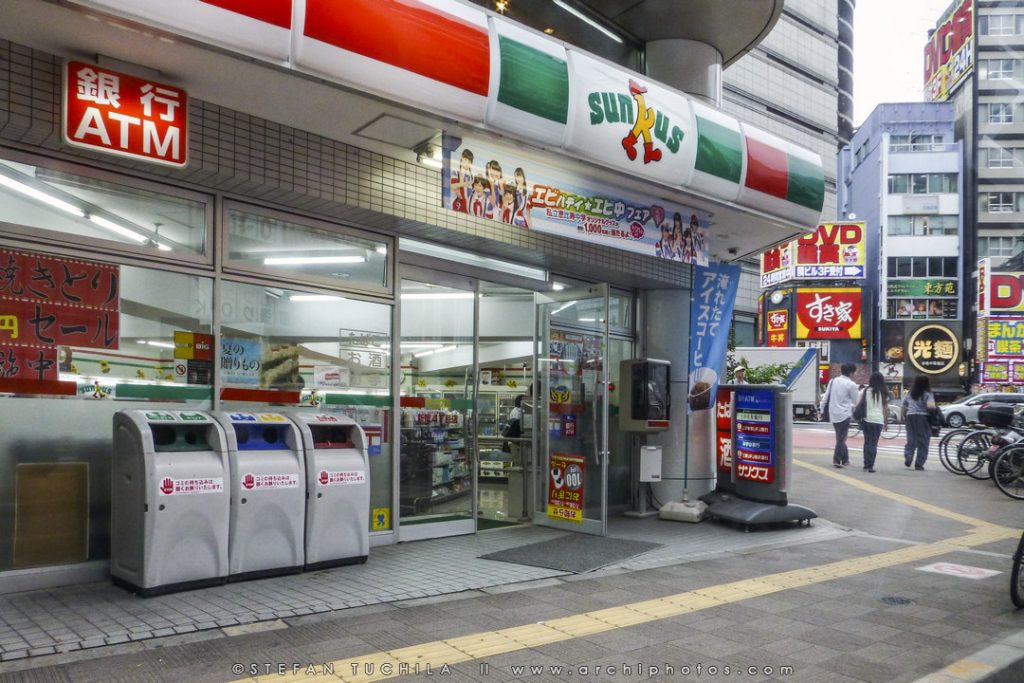 *Kombini, Tokyo center
*Kombini, Tokyo center
Kombini is the essential element of a vast and powerful network dedicated to monitoring and meeting consumer needs. About anything you can find in these shops is the result of an analysis and calculation based on user data: age, sex, social profile, all these elements being introduced into the system by the employees, when cashing money. The analysis of these elements and other data related to the specific city and district will help decide what merchandise must be found in the store and especially in what amounts.
Most Kombinis don’t stock merchandise – the space is limited and real estate is expensive. In addition, much of the food is delivered daily, Japanese consumers loving fresh produce. In a 7-Eleven store deliveries occur three times daily with onigiri (rice-based snack and various types of fillings), bento (food trays) and fresh pastries. Another delivery system (related to different storage temperatures) brings, also three times a day, sandwiches, salads, milk and yoghurt-based products. Ice cream and frozen products are delivered between 3-7 times a week, as well as drinks and other longer-lasting products.
All the data collected from the profiles by the employees (a treasure for sociologists) and real time status of the number of products in the store are processed by a central computer network. Using especially created algorithms, the company managers decide what and where to sell, if the number of chocolate brands must be increased in a store or if selling mango yogurt must be discontinued in another. For maximum efficiency and limiting losses, a large nervous system takes all decisions regarding the good functioning and efficiency of the stores.
The central brain will decide the “occupation” of the territory, each year hundreds of stores being opened and dozens being closed. If the sales of a store are not as expected, it will be closed and relocated. The system wonderfully suits Japanese urban culture. Apparently a sum of identical elements, each store is an individual body, perfectly adapted to its environment.
It is not perchance that this phenomenon was developed in Japan, because few countries’s level of organization and development would allow them to create and maintain such a system. In fact few countries are so consumer oriented and fewer still are so safe (to keep a convenience store open at night is a significant risk in many European cities), and this makes the Kombini a uniquely Japanese phenomenon. Maybe this is just for now; could Kombini be the sign that technology actually gives small social scale a chance or, conversely, that having a “connected” society means hyper-organization, control and social efficiency?
